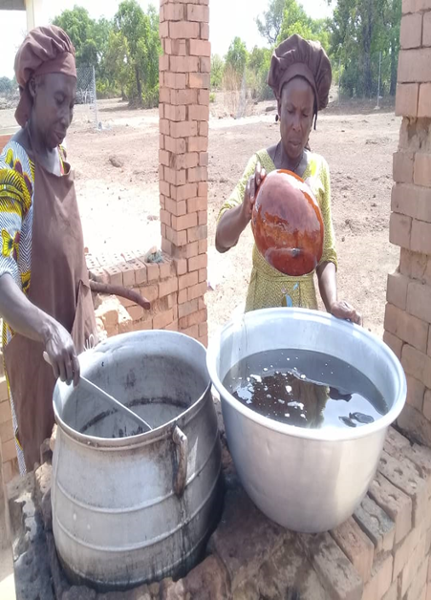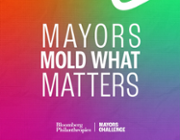The importance of LED to post-COVID recovery

09 July 2020
With COVID-19 having a devastating impact on so many areas of our lives, CLGF’s West Africa Regional Programme Officer, Joyce Ekuful, caught up with local government practitioner in Ghana, Bimi Bilattey. As Assistant Development Planning Officer of Nadowli-Kaleo District for six years, he was formerly the main contact point for CLGF’s Local Economic Development (LED) pilot project in Nadowli-Kaelo. Bimi offers his thoughts on LED and what local government should be doing, post-Covid-19.
COVID-19 has brought many development activities to a standstill. The disruption to economic and other livelihood activities is unprecedented. Within the Ghanaian landscape, COVID-19 has engulfed every facet of the national economy, impacting on society and with women and children, especially, becoming aware of the harsh realities as our economy and society remain under the dictates of the pandemic.
Government measures
The Ghanaian government has put in place a number of measures in response. In the Micro, Small and Medium Enterprises (MSMEs) sector, reported to be the hardest hit, a COVID-19 Alleviation Programme has been introduced to reach out to businesses with GH¢600 million to be disbursed as soft loans to around 200,000 MSMEs. Other interventions include free water for domestic use, free electricity for lifeline consumers and 50% discount for non-life line consumers; distribution of food items to the poor and vulnerable; and these and others are on-going.
We do not know when COVID-19 will end. What we do know is that the local community is the incubating point for the virus through the people. The community level is therefore where attention must be focused and, going forward, an important step is to look at what COVID-19 has taught us, particularly the vulnerabilities that have been exposed in our economic and social conditions; and what we need to do post-pandemic.
Home grown strategies and solutions
The first lesson from COVID-19 is that economies are established, and largely dependent on local resources, skills and technologies rather than those of foreign origin, and have responded and adapted quite well and faster, with an element of resilience. It is the home-grown jobs have proven to be more sustainable under COVID-19. Another key lesson is about the nature of the virus, and how it transcends national borders and is truly global; and yet its dynamics and consequences vary greatly from one region to the other. We need home-grown strategies and solutions.
We must ask what measures are being put in place by local governments and sub-national actors to promote and grow local industries. For example, the Shea value chain sector, the garment industry (Smock and Kente making), agro-processing-soya bean, ground nut oil and paste, gari processing, palm oil and the gamut of local commodities and resources all have the potential to provide sustainable jobs, livelihoods and resilient local economies.
As the devastating effects continue to take their toll on people and national economies, the real fear is for the next downturn, when many will be pushed further down into poverty and unemployment, with governments facing the huge challenge of meeting the needs of its people. If Ghana is to prepare for the post-COVID, recovery period, it will require a paradigm shift in the way local businesses are modelled; livelihoods are shaped; and how jobs are created for a start. This must be a shift towards Innovation and Local Economic Development (LED).
Localism is the key
We have to start, I believe, by promoting LED as the most viable, alternative development strategy to fully harness the potential of local communities for job creation and, as a direct outcome, improving living conditions. We must bring localism to mainstream development activity with a focus on local resources, participation and social capital mobilisation. LED can provide the platform for creating and guaranteeing sustainable jobs, but it must be firmly based in priority, cross-cutting themes like gender and climate change.
Planning integration is key to our local economic development agenda, for example, looking critically at existing community plans and planning frameworks to align efforts and goals of building strong and safer community. This also involves mainstreaming local or community hazard mitigation strategies and actions into other community plans while encouraging collaborative planning and implementation. The main aim is to effectively bring together plans and policies across disciplines. The benefits of this are not far-fetched.
Contribution of LED to the wider economic recovery
Finally, Local Governments are at the centre and play a critical role in addressing the COVID-19 challenges especially in taking priority actions that will make a significant contribution to improving the hygiene, water, food and health care in the face of the corona virus pandemic. Local governments and actors at sub-national levels must, therefore, intensify their presence in the domain of local economic development. To do this, we must have: increased capacity for local level actors; leadership commitment; increased budgetary allocations for LED; provide more opportunities for private participation.
Mr Bilattey concluded by saying that COVID-19 is already changing our lives and we now live the New Normal. Sharp changes are coming to the fore in our behaviours and the way we do things. We must, therefore, accept that some things are no longer optional, for instance: going the extra mile; being more innovative; having more belief in ourselves; using our local resources; coming up with home grown solutions to this global challenge; and re-directing investment into critical and strategic areas. The earlier we relook and take LED seriously the better.
Bimi Bilattey is now Development Planning Officer of Wa East District Assembly.
Back to News





